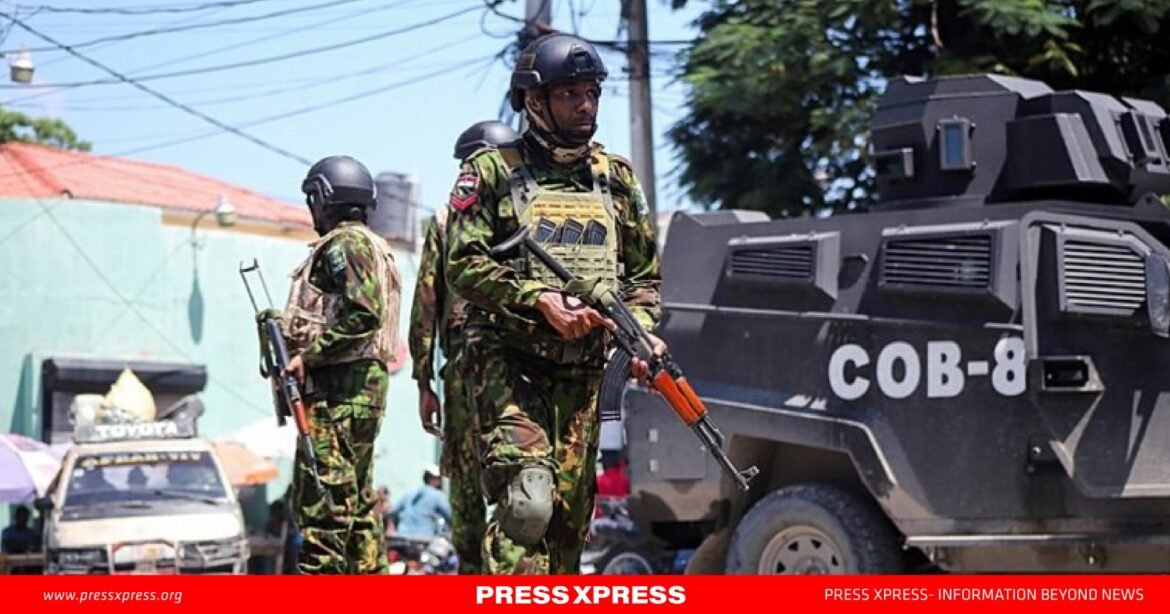Key Highlights
- Armed men met no resistance, local says
- Attack in agricultural hub expected to worsen hunger crisis
- No progress on justice for massacres in recent years
At least 70 people were killed and over 6,000 displaced when the ‘Gran Grif’ gang launched a brutal attack in the central Haitian town of Pont-Sonde, some 100 kilometers northwest of Port-au-Prince.
The assault, which occurred on Thursday, marks one of the deadliest episodes in the beleaguered nation’s recent history, underscoring a pervasive climate of lawlessness that has gripped the country.
According to the Office of the United Nations High Commissioner for Human Rights, the attackers, armed with automatic rifles, opened fire indiscriminately on residents, resulting in at least 70 fatalities, including approximately 10 women and three infants. Thameen Al-Kheetan, a spokesperson for the UN Human Rights Office, described the scene as horrific, noting that 16 individuals sustained serious injuries in the melee, among them two gang members who were injured during a shootout with the Haitian police.
The violence in Pont-Sonde escalated quickly as gang members set ablaze 45 homes and 34 vehicles, displacing thousands. Most of the displaced have sought refuge with families in the nearby town of Saint-Marc and other localities, while others have been forced into temporary camps. Local authorities noted the gang’s ruthless tactics, highlighting the targeted burning of homes and cars.
Key Stats:
• Death Toll: At least 70 people killed, including approximately 10 women and 3 infants
• Injuries: 16 people seriously injured, including 2 gang members
• Displacement: Over 6,000 people displaced
• Destruction: 45 homes and 34 vehicles set ablaze by the gang
• Gang Involved: Gran Grif gang, responsible for the assault
In a statement issued via X, Haitian Prime Minister Garry Conille condemned the massacre as an abhorrent act against the nation, promising to bolster security in the region. Additionally, a change in police leadership in the Artibonite department was confirmed by a national police spokesperson, who also reassured that reinforcements had been dispatched to stabilize the situation. This latest massacre is symptomatic of a broader crisis in Haiti, where gangs have tightened their grip over Port-au-Prince and are increasingly venturing into neighboring areas. The resultant insecurity has aggravated hunger and displacement, with international aid lagging and regional deportations exacerbating the turmoil.
A Massacre Highlights Challenges in Haiti
Even in a country plagued by high levels of violence, the recent massacre in Pont-Sonde is considered the worst in years, surpassing the 2018 slaughter of 71 people in Port-au-Prince’s La Saline. This massacre highlights the expanding reach of gangs like Gran Grif, which now target areas like Saint-Marc for extortion and kidnapping as they broaden their territorial control.
The attack not only demonstrates the dire situation in Haiti but also the immense challenges facing the international security force deployed since June. Tasked with combating the rampant gang violence, this U.N.-backed force, primarily funded by the U.S. and staffed by personnel from Kenya, Jamaica, and Belize, is significantly understaffed with just over 400 of the planned 2,500 officers. Notably, it lacks presence in critical regions like Saint-Marc, part of the strategic Artibonite department, which is a hub for at least 20 active gangs.
The Haitian National Police is also struggling with a severe manpower shortage after losing thousands of officers in recent years. In response to the massacre, the U.N. Human Rights Office has called for increased funding for the Multinational Security Support mission (M.S.S.) to address these gaps effectively.
William O’Neill, the U.N.’s expert on Haiti, emphasized the gangs’ advantage due to the M.S.S.’s limited resources, noting, “This gang can operate with impunity until this fundamental weakness in the current deployment is corrected.”
Gangs on a Violent Quest for Control
The Artibonite region, located between Port-au-Prince and Cap-Haïtien, is crucial for gangs aiming to dominate the lucrative kidnapping routes and farmlands. Their control over major highways, including the one through Artibonite, has severely impacted the local economy, with extortion fees driving up prices and forcing farmers to abandon about 7,500 acres of land. The ongoing violence has escalated the region’s security crisis, severely hampering access to basic services like healthcare and limiting humanitarian aid, as reported by Haiti’s Health Ministry.
A Country Engulfed in Violence
Since the 2017 assassination of President Jovenel Moïse, Haiti has seen a spike in violence, with gangs orchestrating coordinated attacks on police stations, prisons, and hospitals. These attacks have destabilized the government, forcing key officials to resign and leaving over 700,000 displaced persons unable to return home. The U.S. Treasury Department and U.N. Security Council recently sanctioned Luckson Elan, leader of the Gran Grif gang, for his role in widespread human rights violations, including kidnapping, murder, and forced recruitment.
This period has been marked by significant violence, with the U.N. reporting over 3,600 deaths this year alone. The situation in Haiti remains precarious, with gangs wielding significant power and the international community struggling to restore stability and protect human rights.


